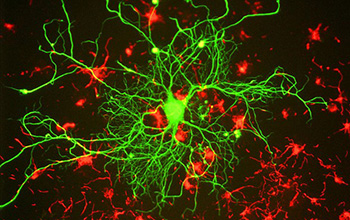CSoI Subramaniam Lab Identifies New Alzheimer's Mechanism

Researchers at the University of California San Diego have identified new Alzheimer's disease mechanisms in neurons. The scientists have discovered that changes in the structure of chromatin, a tightly coiled form of DNA, trigger neurons to lose their specialized function and revert to an earlier cell state. That results in the loss of synaptic connections, an effect associated with memory loss and dementia.
The U.S. National Science Foundation-funded findings are published in Science Advances.
The study was founded on the question: How do neurons in patients with Alzheimer's disease differ from neurons in healthy individuals?
"It's a fundamental question that would provide the framework and foundation for understanding Alzheimer's disease at the cellular level, and pave the path for novel therapeutic approaches," said bioengineer Shankar Subramaniam.
Subramaniam worked with an interdisciplinary team of engineers and neuroscientists at UC San Diego to answer this question. They started by taking human induced pluripotent stem cells derived from patients with familial Alzheimer's disease, a hereditary form of Alzheimer's, and transformed them into neurons.
"The lessons gleaned from examining large-scale connectivity have fascinating implications beyond communication networks, including brain connectivity in neural studies, with the potential to impact the quality of life," said Phil Regalia, a program director in NSF's Directorate for Computer and Information Science and Engineering.


